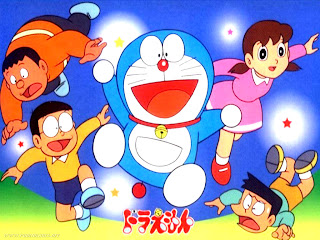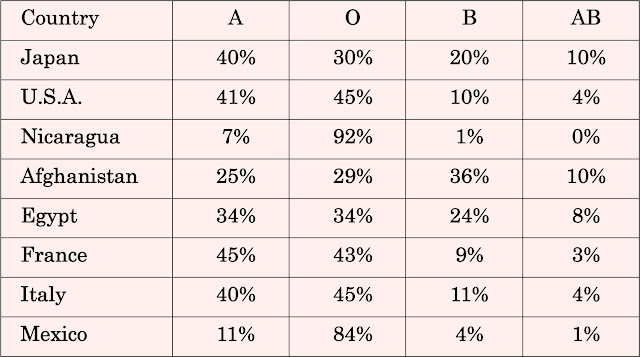● original essay ●
Today I read an article about the difference to know how others are feeling between Japanese and Dutch. According to the article, Japanese read others’ voice tones rather than reading their faces. When I read it I made a quite sense.
I’ve heard of that several times, for people from other countries it’s difficult to understand what Japanese are thinking from their facial expressions. They often say “I wonder why Japanese are always smiling, even though when they are not happy?” Maybe that’s for sure. Maybe many Japanese tend to force their faces into a smile unconsciously.
Generally it is said that Japanese are bad at expressing their feelings. Nowadays, maybe Japanese express their feelings better than a decade ago, but still their faces make foreigners confused. Sometimes, their facial expressions and words represent completely different emotions at the same time — they look obviously uncomfortable but act like no problem. They definitely seem to eat dislike food but they never say can’t eat it. Instead, they say “It’s delicious...” with a fixed smile. In these cases, they don’t mean to pretend to be a nice person. They lie, but it’s a white lie to do well with others.
There are 本音(hon-ne) and 建前(tatemae) in Japanese society. Hon-ne means an honest feeling and tatemae means a polite face. Almost all Japanese have been learned using both hon-ne and tatemae as the situation demands is one of the keys to manage relationships successfully, in their daily lives. Maybe it’s happy if they can be always honest with their feelings and thinking, but they hesitate to do that. I think it’s a part of Japanese culture. Japan was a homogeneous country and they were agricultural people. That’s also a part of reasons why Japanese lack an ability of self-expression.
In Japan, there is a tendency to hesitate bald expressions for both acceptors and people who express themselves. For example, when they eat something it’s really bad and a chef asks, “How is it?” they will never say “It’s awful” or “It’s disgusting” like Gordon Ramsay from the TV show “Ramsay’s Kitchen Nightmares”. They might say, “Hmm… it’s a kind of a novel taste. I’ve never tasted like this before. It has a very unique flavor, yeah...” And the chef will notice the food isn’t good from their subtle reactions. I think we believe “You know my feeling without obvious behaviors or words” because of the history we have lived in the homogeneous country using only one language for a long time. Many people believe containing their emotions is a virtue. In fact, in Japan showing yourself honestly everywhere and always has possibility to seem you are green.
There is also a way of thinking that understanding other’s feeling or thinking even though they say nothing is “粋(iki)”. Iki means cool or smart. There is other thinking that feigning dislike or indifference to something or someone means being interested in or like it: in Japanese, “嫌い嫌いも好きのうち(kirai kirai mo suki no uchi)”. Or, answering in the strongly negative means yes: “強い否定は肯定を表す(tuyoi hitei ha koutei wo arawasu)”. When foreign people hear these they may think Japanese are incomprehension and mysterious: how do we know their true thought when Japanese say “yes” or “no”? I’m also confused if I accept them literally.
As I wrote it before, Japan was an agricultural nation. Also mountains cover about 70% of the land. We had to live and help each other to get a good harvest in the limited flatland. In that situation, a strong self-expression or self-assertive was hated by people in the same community. Sometimes these attitude and behavior made people in the same society difficult to work together. Then people were getting to avoid showing their honest feelings or thinking to others, because for protecting their comfortable lives in their society. That’s why Japanese can’t express their feeling well, I think. Our enigmatic facial expressions or words are maybe a kind of defender instincts to live in Japan comfortably.
Even though Japanese are great to control their faces, they can’t go that far controlling their voice tones too. So, when Japanese try to know others’ feeling they may read others’ voice tones rather than faces based on their experiences. The voice tones show their hon-ne, and the facial expressions show their tatemae. I think whether they’re Japanese or not, many people can’t stop changing their usual voice tone into a high-pitched or stammering for a moment, when they aren’t honest.
Everybody has different self-expression regardless of nationality. Unfortunately sometimes these differences lead to misunderstandings, but they also give us a chance to notice new way of looking at things. If we seek to understand each other I think we can do it, even though face expressions are trustless or voice tones are changing. Nobody is the same, that’s why having relationship with others is difficult, but it’s interesting.
By the way, how do you express your feeling to others?
If you’re interested in the article, this is the URL below.
● corrected essay ●
Today I read an article about the difference in knowing how others are feeling between Japanese and Dutch. According to the article, Japanese read others’ voice tones rather than reading their faces. It made sense to me.
I’ve heard several times from foreigners, it’s difficult to understand what Japanese are thinking from their facial expressions. They often say “I wonder why Japanese are always smiling, even though they are not happy”. Maybe it’s true! Maybe many Japanese tend to force their faces into a smile unconsciously.
Generally it is said, “Japanese are bad at expressing their feelings.” Nowadays, maybe Japanese express feelings better than a decade ago, but still our faces make foreigners confused. Sometimes, our facial expressions and words represent completely different emotions at the same time — we look obviously uncomfortable but act like there’s no problem. We definitely seem to eat food we dislike but never we say can’t eat it. Instead, we say “It’s delicious...” with a fixed smile. In these cases, we don’t mean to pretend to be a nice person; we simply lie a little. But it’s a white lie, to only do well with others.
There are 本音(hon-ne) and 建前(tatemae) in Japanese society. Hon-ne means an honest feeling and tatemae means a polite face. Almost all Japanese have learned to use both hon-ne and tatemae as the situation demands to manage relationships successfully. Maybe it’s better if we can always be honest with our feelings and thinking, but we hesitate to do that. I think it’s a part of Japanese culture.
In Japan, there is a tendency to refrain from using bold expressions. For example, when we eat something that’s really bad and a chef asks how is it, we will never say it’s awful or it’s disgusting like Gordon Ramsay from the TV show “Hell’s Kitchen”. We might say, “Hmm… it’s a kind of a novel taste. I’ve never tasted like this before. It has a very unique flavor, yeah...” The chef will notice the food isn’t good from our subtle reactions. It seems we believe people know our feelings without obvious behavior or words because we have lived in a homogeneous country using only one language for a long time. Many Japanese believe containing our emotions is a virtue. In fact, showing yourself honestly everywhere and always in Japan could mean you are green. There is also a way of thinking, in Japan, that understanding an other’s feelings or thinking, even though they say nothing, is “粋(iki)”. Iki means cool or smart.
There is also a thinking that feigning dislike or indifference to something or someone means actually being interested in or liking: in Japanese, “嫌い嫌いも好きのうち(kirai kirai mo suki no uchi)”. Or, answering in a strongly negative voice actually means yes: “強い否定は肯定を表す(tuyoi hitei ha koutei wo arawasu)”. When foreign people hear these they may think Japanese are incomprehensible and mysterious. I’m also confused, if I accept them literally.
As I wrote before, Japan was an agricultural nation. Also mountains cover about 70% of the land. We had to live and help each other to get a good harvest in limited flatland. In that situation, strong self-expression or self-assertiveness was hated. Sometimes this attitude and behavior made it difficult for people to work together. Then we began to avoid showing our honest feelings or thoughts to others to protect our comfortable lives. I think that’s why we can’t express our feeling well. Our enigmatic facial expressions or words are maybe a kind of defensive instinct to live in Japan comfortably.
Even though Japanese are great at controlling their faces to hide feelings and thoughts, we can’t go as far at also controlling our voice tones. So when we try to know others’ feelings we may read their voice tones rather than their faces. Voice tones show our hon-ne, and facial expressions show our tatemae. I think whether we’re Japanese or not, many people can’t stop changing their usual voice tone into a high-pitched or stammering for a moment.
Everybody has different self-expression, regardless of nationality. Unfortunately, these differences sometimes lead to misunderstandings. But they also give us a chance to notice new ways of looking at things. Even though facial expressions are trustless and voice tones are changing, we can seek to understand each other. I think we can do it. Nobody is the same, that’s why having relationship with others is difficult. But it’s all worth it.
By the way, how do you express your feelings to others?
I’ve heard several times from foreigners, it’s difficult to understand what Japanese are thinking from their facial expressions. They often say “I wonder why Japanese are always smiling, even though they are not happy”. Maybe it’s true! Maybe many Japanese tend to force their faces into a smile unconsciously.
Generally it is said, “Japanese are bad at expressing their feelings.” Nowadays, maybe Japanese express feelings better than a decade ago, but still our faces make foreigners confused. Sometimes, our facial expressions and words represent completely different emotions at the same time — we look obviously uncomfortable but act like there’s no problem. We definitely seem to eat food we dislike but never we say can’t eat it. Instead, we say “It’s delicious...” with a fixed smile. In these cases, we don’t mean to pretend to be a nice person; we simply lie a little. But it’s a white lie, to only do well with others.
There are 本音(hon-ne) and 建前(tatemae) in Japanese society. Hon-ne means an honest feeling and tatemae means a polite face. Almost all Japanese have learned to use both hon-ne and tatemae as the situation demands to manage relationships successfully. Maybe it’s better if we can always be honest with our feelings and thinking, but we hesitate to do that. I think it’s a part of Japanese culture.
In Japan, there is a tendency to refrain from using bold expressions. For example, when we eat something that’s really bad and a chef asks how is it, we will never say it’s awful or it’s disgusting like Gordon Ramsay from the TV show “Hell’s Kitchen”. We might say, “Hmm… it’s a kind of a novel taste. I’ve never tasted like this before. It has a very unique flavor, yeah...” The chef will notice the food isn’t good from our subtle reactions. It seems we believe people know our feelings without obvious behavior or words because we have lived in a homogeneous country using only one language for a long time. Many Japanese believe containing our emotions is a virtue. In fact, showing yourself honestly everywhere and always in Japan could mean you are green. There is also a way of thinking, in Japan, that understanding an other’s feelings or thinking, even though they say nothing, is “粋(iki)”. Iki means cool or smart.
There is also a thinking that feigning dislike or indifference to something or someone means actually being interested in or liking: in Japanese, “嫌い嫌いも好きのうち(kirai kirai mo suki no uchi)”. Or, answering in a strongly negative voice actually means yes: “強い否定は肯定を表す(tuyoi hitei ha koutei wo arawasu)”. When foreign people hear these they may think Japanese are incomprehensible and mysterious. I’m also confused, if I accept them literally.
As I wrote before, Japan was an agricultural nation. Also mountains cover about 70% of the land. We had to live and help each other to get a good harvest in limited flatland. In that situation, strong self-expression or self-assertiveness was hated. Sometimes this attitude and behavior made it difficult for people to work together. Then we began to avoid showing our honest feelings or thoughts to others to protect our comfortable lives. I think that’s why we can’t express our feeling well. Our enigmatic facial expressions or words are maybe a kind of defensive instinct to live in Japan comfortably.
Even though Japanese are great at controlling their faces to hide feelings and thoughts, we can’t go as far at also controlling our voice tones. So when we try to know others’ feelings we may read their voice tones rather than their faces. Voice tones show our hon-ne, and facial expressions show our tatemae. I think whether we’re Japanese or not, many people can’t stop changing their usual voice tone into a high-pitched or stammering for a moment.
Everybody has different self-expression, regardless of nationality. Unfortunately, these differences sometimes lead to misunderstandings. But they also give us a chance to notice new ways of looking at things. Even though facial expressions are trustless and voice tones are changing, we can seek to understand each other. I think we can do it. Nobody is the same, that’s why having relationship with others is difficult. But it’s all worth it.
By the way, how do you express your feelings to others?






